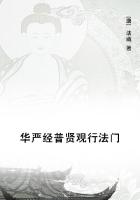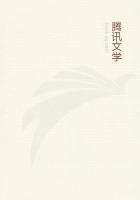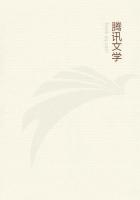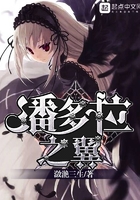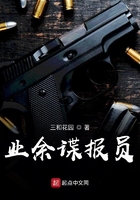Only twice in my life have I been accused of quoting without giving due credit. The other case was that of Matilda Joslyn Gage. I had, on two or three occasions, used a motto of hers in autograph books, just as I had sentiments from Longfellow, Lowell, Shakespeare, Moses, or Paul. In long lyceum trips innumerable autograph books met one at every turn, in the cars, depots, on the platform, at the hotel and in the omnibus. "A sentiment, please," cry half a dozen voices. One writes hastily different sentiments for each. In this way I unfortunately used a pet sentiment of Matilda's. So, here and now, I say to my autograph admirers, from New York to San Francisco, whenever you see "There is a word sweeter than Mother, Home, or Heaven杢hat word is Liberty," remember it belongs to Matilda Joslyn Gage. I hope, now, that Robert and Matilda will say, in their posthumous works, that I made the amende honorable, as I always strive to do when friends feel they have not been fairly treated.
In May, 1881, the first volume of our History appeared; it was an octavo, containing 871 pages, with good paper, good print, handsome engravings, and nicely bound. I welcomed it with the same feeling of love and tenderness as I did my firstborn. I took the same pleasure in hearing it praised and felt the same mortification in hearing it criticised. The most hearty welcome it received was from Rev. William Henry Channing. He wrote us that it was as interesting and fascinating as a novel. He gave it a most flattering notice in one of the London papers. John W. Forney, too, wrote a good review and sent a friendly letter. Mayo W. Hazeltine, one of the ablest critics in this country, in the New York Sun, also gave it a very careful and complimentary review. In fact, we received far more praise and less blame than we anticipated. We began the second volume in June. In reading over the material concerning woman's work in the War, I felt how little our labors are appreciated. Who can sum up all the ills the women of a nation suffer from war? They have all of the misery and none of the glory; nothing to mitigate their weary waiting and watching for the loved ones who will return no more.
In the spring of 1881, to vary the monotony of the work on the history, we decided to hold a series of conventions through the New England States.
We began during the Anniversary week in Boston, and had several crowded, enthusiastic meetings in Tremont Temple. In addition to our suffrage meetings, I spoke before the Free Religious, Moral Education, and Heredity associations.
All our speakers stayed at the Parker House, and we had a very pleasant time visiting together in our leisure hours. We were received by Governor Long, at the State House. He made a short speech, in favor of woman suffrage, in reply to Mrs. Hooker. We also called on the Mayor, at the City Hall, and went through Jordan &; Marsh's great mercantile establishment, where the clerks are chiefly young girls, who are well fed and housed, and have pleasant rooms, with a good library, where they sit and read in the evening.
We went through the Sherborn Reformatory Prison for Women, managed entirely by women. We found it clean and comfortable, more like a pleasant home than a place of punishment.
Mrs. Robinson, Miss Anthony, and I were invited to dine with the Bird Club. No woman, other than I, had ever had that honor before. I dined with them in 1870, escorted by "Warrington" of the Springfield Republican and Edwin Morton. There I met Frank Sanborn for the first time. Frank Bird held about the same place in political life in Massachusetts, that Thurlow Weed did in the State of New York for forty years. In the evening we had a crowded reception at the home of Mrs. Fenno Tudor, who occupied a fine old residence facing the Common, where we met a large gathering of Boston reformers. On Decoration Day, May 30, we went to Providence, where I was the guest of Dr. William F. Channing. We had a very successful convention there. Senator Anthony and ex-Governor Sprague were in the audience and expressed great pleasure, afterward, in all they had heard. I preached in Rev. Frederick Hinckley's church the previous Sunday afternoon.
From Providence I hurried home, to meet my son Theodore and his bride, who had just landed from France. We decorated our house and grounds with Chinese lanterns and national flags for their reception. As we had not time to send to New York for bunting, our flags朏rench and American杦ere all made of bright red and blue cambric. The effect was fine when they arrived; but, unfortunately, there came up a heavy thunderstorm in the night and so drenched our beautiful flags that they became colorless rags.
My little maid announced to me early in the morning that "the French and Americans had had a great battle during the night and that the piazza was covered with blood." This was startling news to one just awakening from a sound sleep. "Why, Emma!" I said, "what do you mean?" "Why," she replied, "the rain has washed all the color out of our flags, and the piazza is covered with red and blue streams of water." As the morning sun appeared in all its glory, chasing the dark clouds away, our decorations did indeed look pale and limp, and were promptly removed.
I was happily surprised with my tall, stately daughter, Marguerite Berry.
A fine-looking girl of twenty, straight, strong, and sound, modest and pleasing. She can walk miles, sketches from nature with great skill and rapidity, and speaks three languages. I had always said to my sons: "When you marry, choose a woman with a spine and sound teeth; remember the teeth show the condition of the bones in the rest of the body." So, when Theodore introduced his wife to me, he said, "You see I have followed your advice; her spine is as straight as it should be, and every tooth in her head as sound as ivory." This reminds me of a young man who used to put my stoves up for the winter. He told me one day that he thought of getting married.
"Well," I said, "above all things get a wife with a spine and sound teeth."

